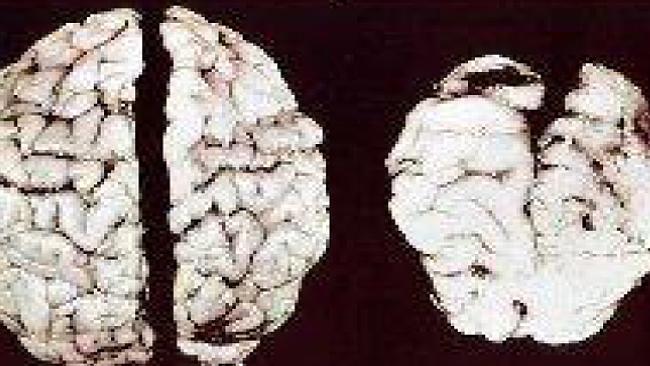
A normal brain (left) and one of a child with foetal alcohol syndrome. Source: Supplied
FOETAL alcohol syndrome in indigenous communities is moving into second and third generations as impaired parents affected by the disorder struggle to raise offspring.
Elizabeth Elliott, a paediatrician at Children’s Hospital Westmead and The University of Sydney, has told a parliamentary inquiry that up to 55 per cent of mothers in one indigenous community were drinking alcohol during pregnancy.
“We are aware of the generations of people now with foetal alcohol spectrum disorders in some communities,” Prof Elliott said.
AUSTRALIA: Only 20 per cent of women avoid alcohol during pregnancy
DIFFICULTIES: Foetal alcohol syndrome linked to binge drinking
“Some mothers who are giving birth to children with foetal alcohol spectrum disorder may themselves have been damaged by alcohol in-utero and hence have quite a limited capacity to parent and school that child.”
Prof Elliott said FAS was also poorly addressed in Australian medical schools and there were negotiations under way with the Royal Australasian College of Physicians to have the issue included in education modules.
Sharman Stone, the chairwoman of the federal Standing Committee on Indigenous Affairs, which is addressing the harmful use of alcohol in indigenous communities, said alcohol was decimating Aboriginal communities.
She said FAS was not confined to indigenous communities. “But, in Australia, if an indigenous person drinks it is more likely they will drink at riskier levels,” she said.
